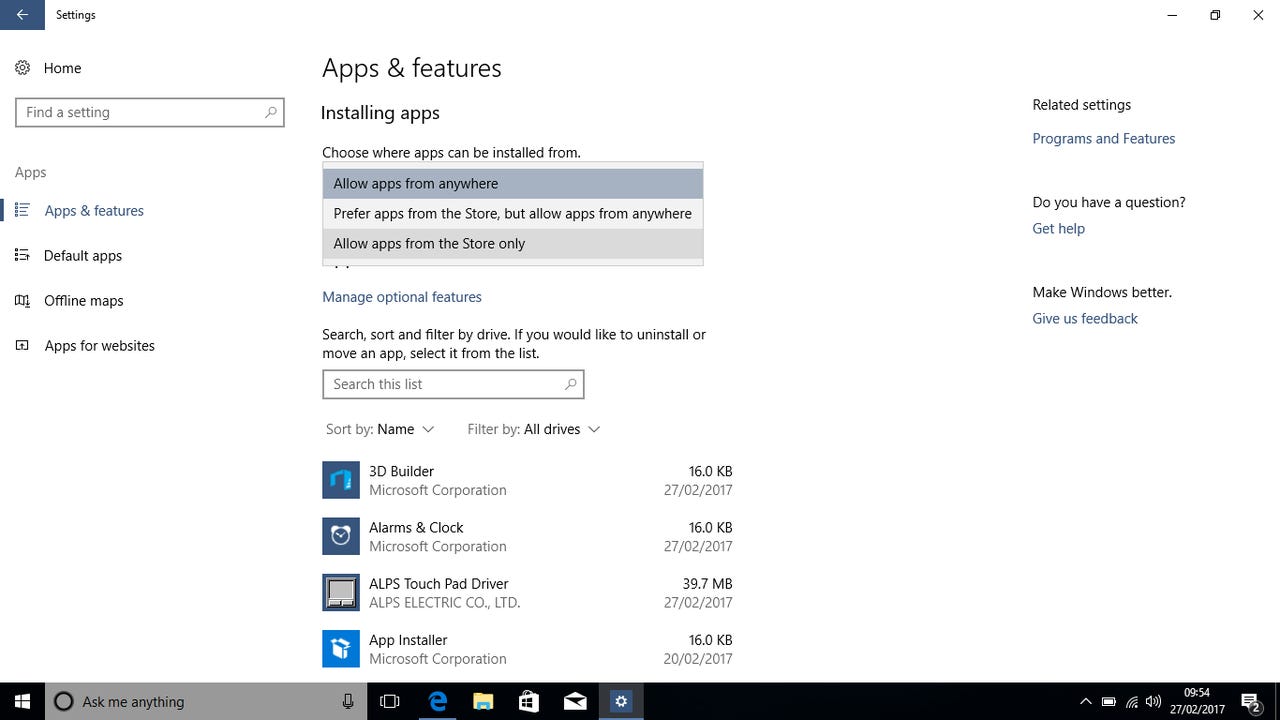Windows 10 to permit block on apps installing if they're not from Microsoft Store

In Apps & features settings, users will be able to control where apps can be installed from.
Microsoft's soon-to-be-released Windows 10 Creators Update will include a new option to only permit apps to install if they're from the Windows Store.
The latest preview of Windows 10 gives users the option to prevent classic Win32 apps, which aren't available in the Windows 10 Store, from installing on a device. This measure could provide a significant defense against bloatware and malware both for consumers and the enterprise.
The new restriction was first spotted by programmer Viktor Mikaelson, and reported by MSPoweruser. It will arrive in the Creators Update, expected in April.
The feature offers Windows 10 users something similar to Apple's macOS Gatekeeper, which warns users when they attempt to install an app from outside the Mac App Store. It's also similar to Google's Android setting to only allow apps to install from Google Play.
In Apps & features settings, users will be able to control where apps can be installed from by choosing between 'Allow apps from anywhere', 'Prefer apps from the Store, but allow from anywhere', or a strict 'Allow apps from the Store only'.
If installs are limited to the store, a dialog box will state: 'You can only install apps from the Windows Store. Limiting installations to apps from the Store helps to keep your PC safe and reliable'.
The more relaxed 'Prefer apps for the Store' option will also display a dialog box warning users if they install an app from outside the Store but will allow them to proceed anyway.
This feature could be a helpful way for enterprise admins to protect users from installing malware on corporate devices. As Bleeping Computer notes, since the strict setting only prevents installation of Win32 apps, sysadmins could still install approved Win32 apps and then apply the filter.
It could also offer developers of Win32 apps a greater incentive to update their apps to the Universal Windows Platform, or UWP, Microsoft's framework for apps to run on all Windows 10 devices, including PCs, Xbox One, HoloLens, and phones.
While Windows 10 still does support Win32 apps, Microsoft only allows UWP apps to be distributed through the Microsoft Store. Microsoft last year released its Desktop Converter tool to help convert some of the 16 million Win32 and .NET apps to UWP, so that they can join the Windows Store.
In its latest appeal for developers to use UWP, Microsoft execs said it was the best way to reach its 400 million Windows 10 users.
